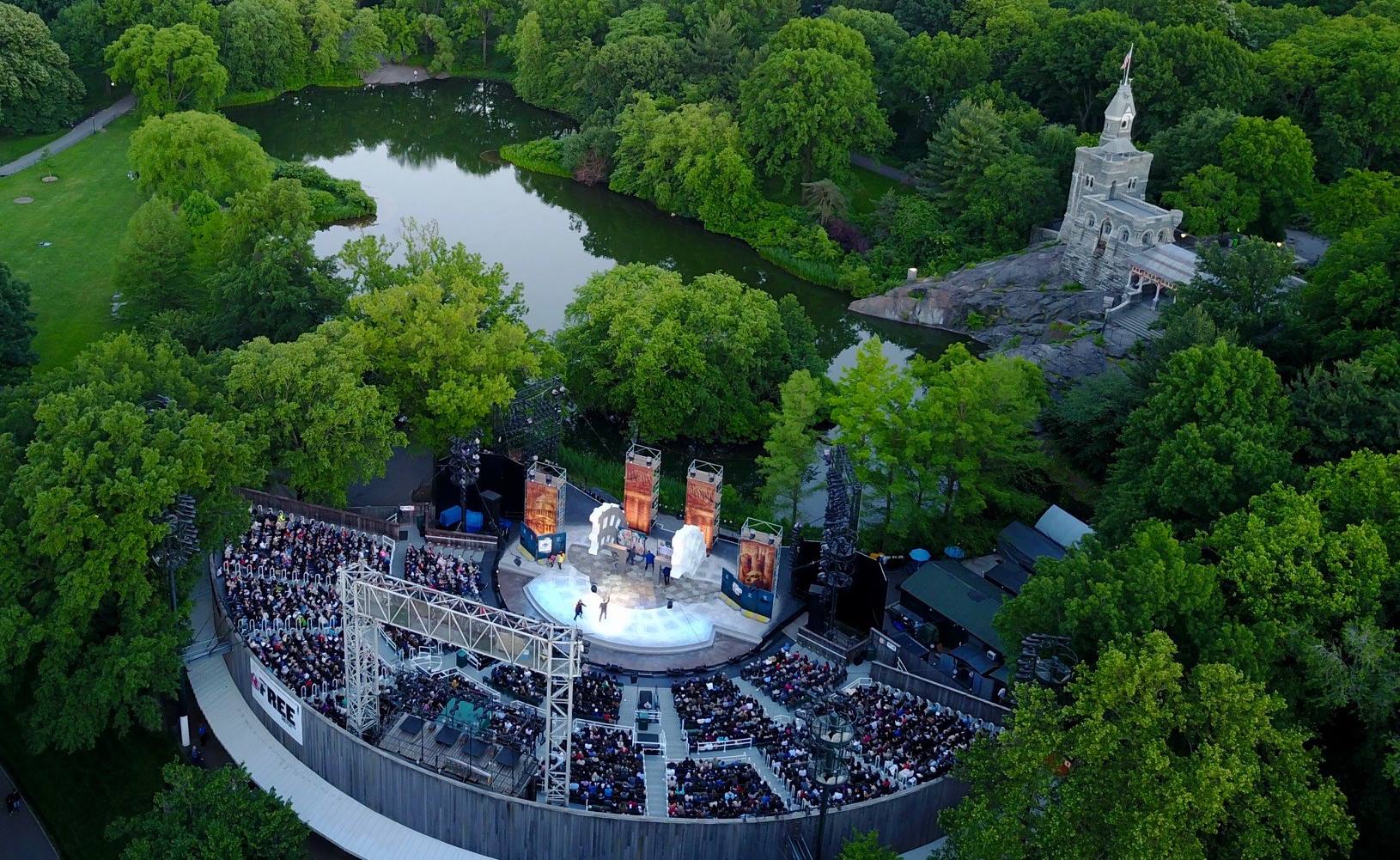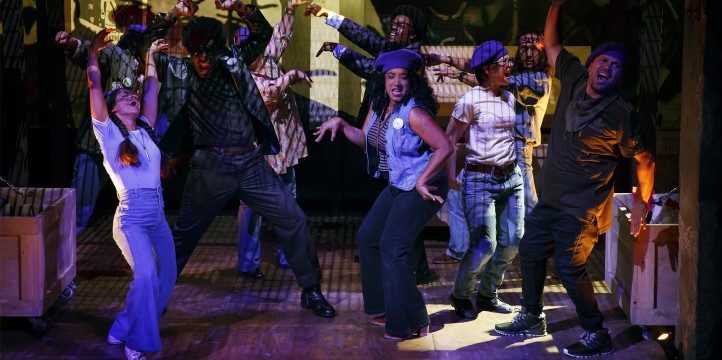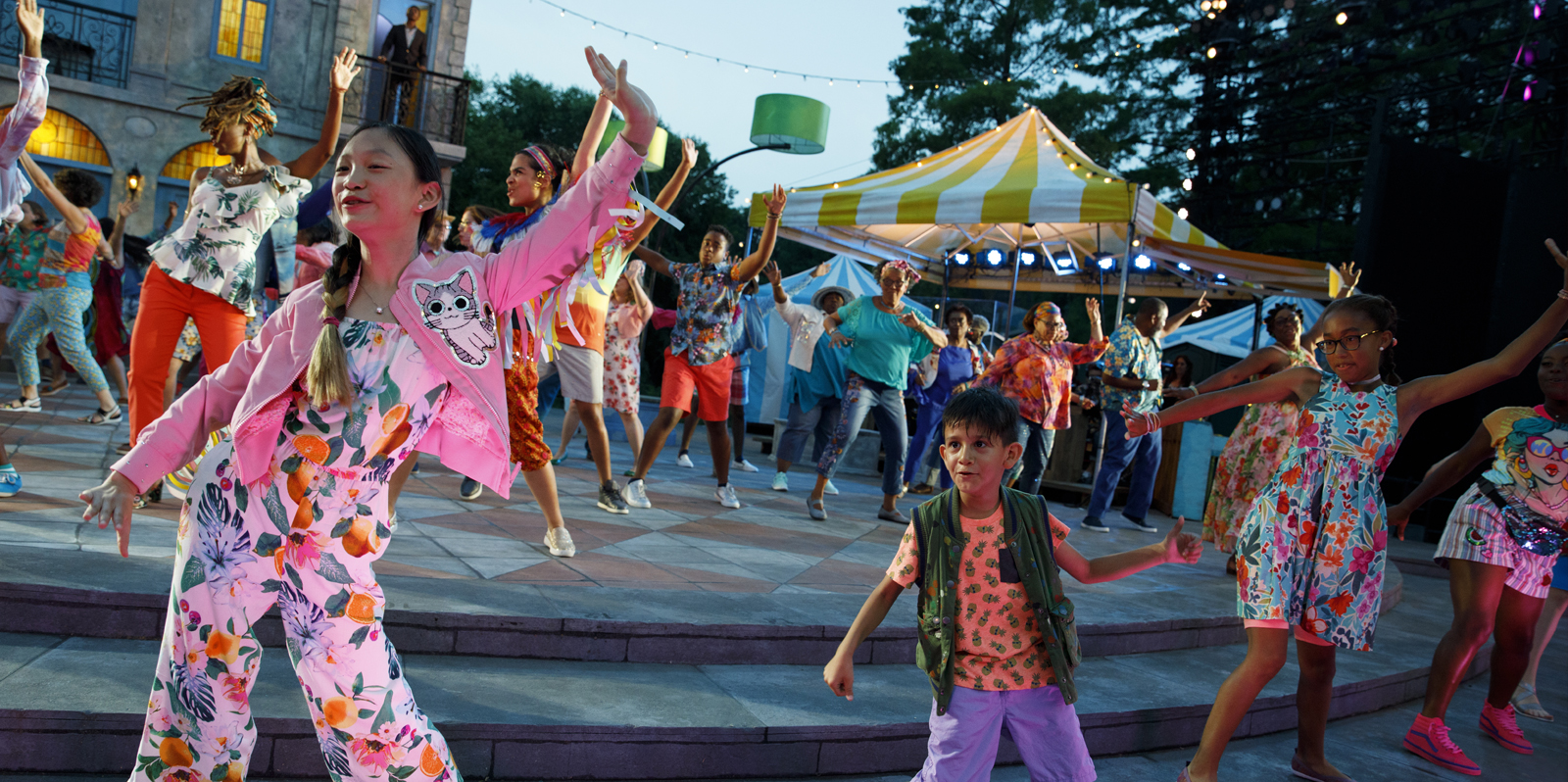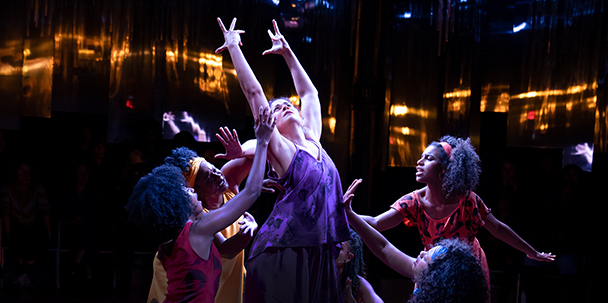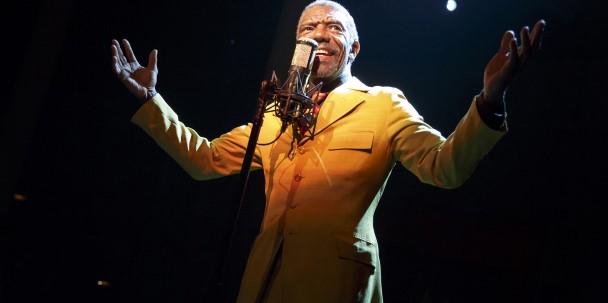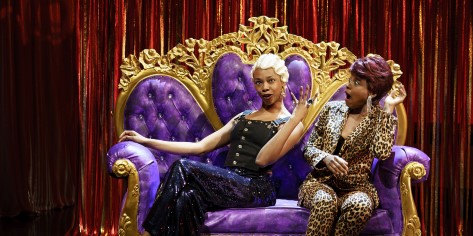ROMEO AND JULIET
Act Two, Scene Two
By William Shakespeare
ROMEO
(He sees Juliet in her window up above,
unaware of Romeo’s presence below)
But soft, what light through yonder window breaks?
It is the East, and Juliet is the sun.
Arise, fair sun, and kill the envious moon,
Who is already sick and pale with grief
That thou, her maid, art far more fair than she.
Be not her maid since she is envious.
Her vestal livery is but sick and green,
And none but fools do wear it. Cast it off.
It is my lady. O, it is my love!
O, that she knew she were!
She speaks, yet she says nothing. What of that?
Her eye discourses; I will answer it.
I am too bold. ’Tis not to me she speaks.
Two of the fairest stars in all the heaven,
Having some business, do entreat her eyes
To twinkle in their spheres till they return.
What if her eyes were there, they in her head?
The brightness of her cheek would shame those stars
As daylight doth a lamp; her eye in heaven
Would through the airy region stream so bright
That birds would sing and think it were not night.
See how she leans her cheek upon her hand.
O, that I were a glove upon that hand,
That I might touch that cheek!
ROMEO Y JULIETA
Acto Segundo, Escena Segunda
Traducción de Pablo Neruda
ROMEO
(Julieta aparece en una ventana, arriba, sin darse
cuenta de la presencia de Romeo).
¡Silencio! ¿Qué ilumina
desde aquella ventana las tinieblas?
¡Es Julieta, es el sol en el oriente!
Surge, espléndido sol, y con tus rayos
mata a la luna enferma y envidiosa,
porque tú, su doncella, eres más clara.
No sirvas a la luna que te envidia.
¡Su manto de vestal es verde y triste,
ninguna virgen ya lo lleva, arrójalo!
¡Es ella en la ventana! ¡Es la que amo!
¡Oh, cuánto diera porque lo supiese!
Habla, aunque nada dice, no me importa,
me hablan sus ojos, les respondo a ellos.
¡Qué idea loca! ¡No es a mí a quien hablan!
Dos estrellas magníficas del cielo
ocupadas en algo allá en la altura
le piden a sus ojos que relumbren.
¿No estarán en su rostro las estrellas
y sus ojos girando por el cielo?
El fulgor de su rostro empañaría
la luz de las estrellas, como el sol
apaga las antorchas. Si sus ojos
viajaran por el cielo brillarían
haciendo que los pájaros cantaran
como si fuera el día y no la noche.
¡Ved como su mejilla está en su mano!
¡Ay, si yo fuera el guante de esa mano
y pudiera tocar esa mejilla!


